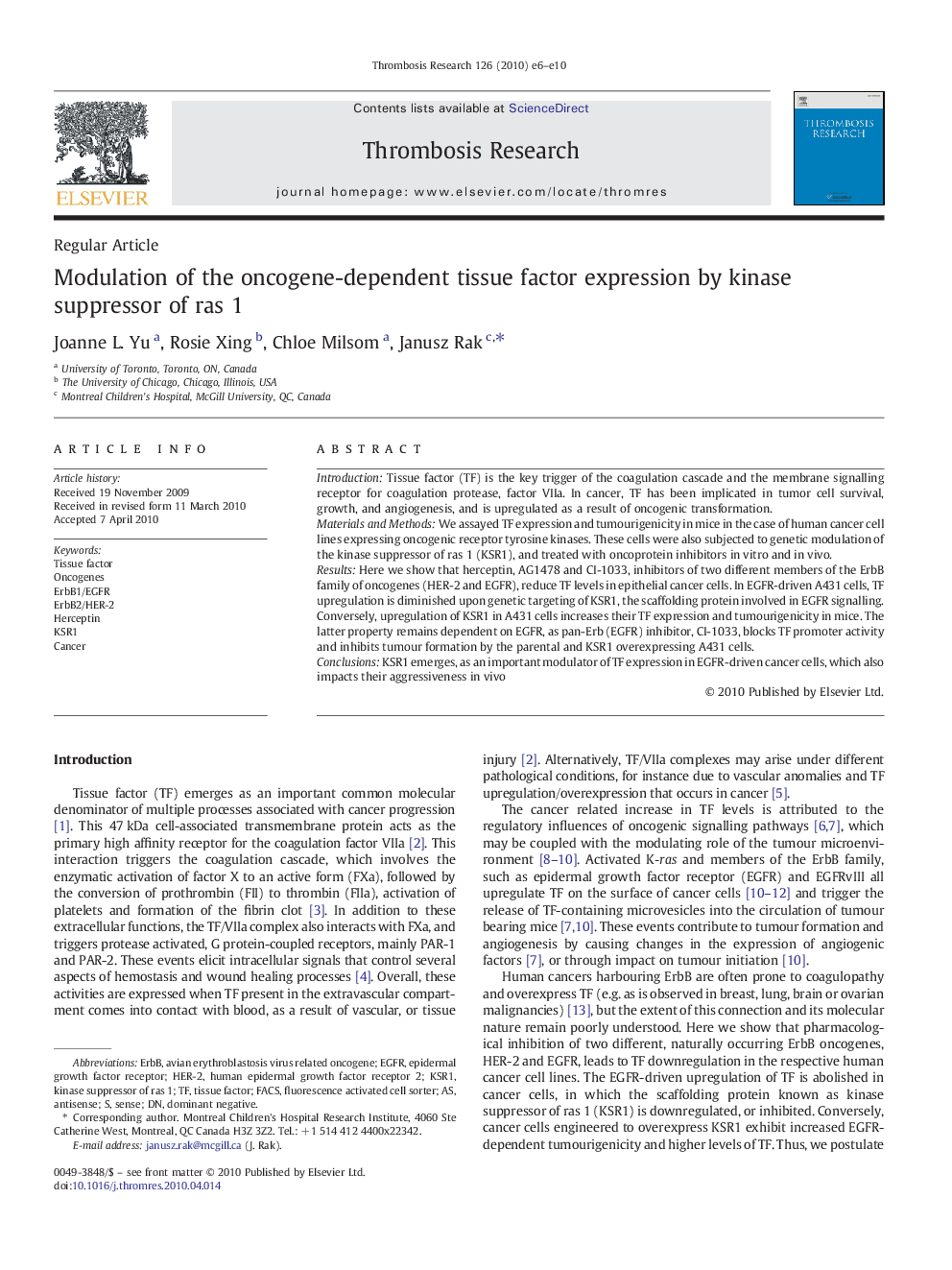| Article ID | Journal | Published Year | Pages | File Type |
|---|---|---|---|---|
| 3029369 | Thrombosis Research | 2010 | 5 Pages |
IntroductionTissue factor (TF) is the key trigger of the coagulation cascade and the membrane signalling receptor for coagulation protease, factor VIIa. In cancer, TF has been implicated in tumor cell survival, growth, and angiogenesis, and is upregulated as a result of oncogenic transformation.Materials and MethodsWe assayed TF expression and tumourigenicity in mice in the case of human cancer cell lines expressing oncogenic receptor tyrosine kinases. These cells were also subjected to genetic modulation of the kinase suppressor of ras 1 (KSR1), and treated with oncoprotein inhibitors in vitro and in vivo.ResultsHere we show that herceptin, AG1478 and CI-1033, inhibitors of two different members of the ErbB family of oncogenes (HER-2 and EGFR), reduce TF levels in epithelial cancer cells. In EGFR-driven A431 cells, TF upregulation is diminished upon genetic targeting of KSR1, the scaffolding protein involved in EGFR signalling. Conversely, upregulation of KSR1 in A431 cells increases their TF expression and tumourigenicity in mice. The latter property remains dependent on EGFR, as pan-Erb (EGFR) inhibitor, CI-1033, blocks TF promoter activity and inhibits tumour formation by the parental and KSR1 overexpressing A431 cells.ConclusionsKSR1 emerges, as an important modulator of TF expression in EGFR-driven cancer cells, which also impacts their aggressiveness in vivo
